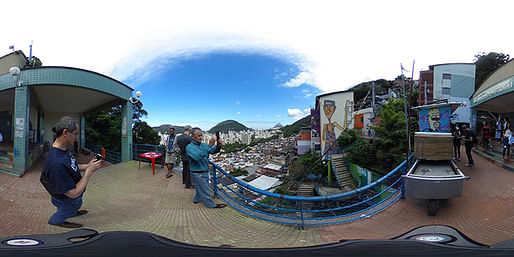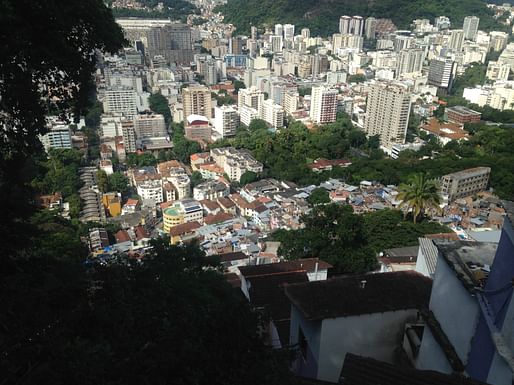

[...] Penn State landscape architecture professor Timothy Baird and architecture professor José Duarte taught a new studio that engaged students in the study of one Brazilian favela via virtual reality (VR) technology. The studio, which paired architecture students with landscape architecture students, posited VR as a proxy for expensive site visits. “Developing countries can’t always afford consultants because of the distance and difficulty to travel,” says Baird [...] — Landscape Architecture Magazine
"Duarte, who has studied informal settlements across the globe, believes in their power to model emergent patterns of more sustainable resource consumption in the developing world, and in the ability for contemporary technology to decode how they work," the Landscape Architecture Magazine writes and quotes Duarte saying: "They are not a problem. They are a solution with many problems."
From the 2018 course description-
This advanced studio will explore the implications of making informal settlements located in Rio de Janeiro, Brazil in an attempt to negotiate complex problems of urbanization using computational design approaches. While computation is understood broadly as a procedural paradigm independent of different technical substrates (e.g. computers), it is also curated through lenses of politics and society. The studio will give students an opportunity to apply computational thinking to a contemporary global problem while using cutting-edge computational technology, including advanced geometric modeling, virtual reality, digital prototyping, remote collaboration, and algorithmic design. Our goal will be to speculate how a site might be articulated to provide the greatest amount of access to marginalized groups with the least of amount of oversight or control. This will require that we think forward while working backwards- using the digital tools we have at hand to propose scenarios to peoples with much less access to data intensive and immersive spatial practices.
All 3 Comments
More on this at the end of semester.
Asking for, or promising? You participating?
Promising- It's partially my studio now.
Look forward to it!
From the 2018 course description-
This advanced studio will explore the implications of making informal settlements located in Rio de Janeiro, Brazil in an attempt to negotiate complex problems of urbanization using computational design approaches. While computation is understood broadly as a procedural paradigm independent of different technical substrates (e.g. computers), it is also curated through lenses of politics and society. The studio will give students an opportunity to apply computational thinking to a contemporary global problem while using cutting-edge computational technology, including advanced geometric modeling, virtual reality, digital prototyping, remote collaboration, and algorithmic design. Our goal will be to speculate how a site might be articulated to provide the greatest amount of access to marginalized groups with the least of amount of oversight or control. This will require that we think forward while working backwards- using the digital tools we have at hand to propose scenarios to peoples with much less access to data intensive and immersive spatial practices.
Santa Marta and the formal city
Block this user
Are you sure you want to block this user and hide all related comments throughout the site?
Archinect
This is your first comment on Archinect. Your comment will be visible once approved.